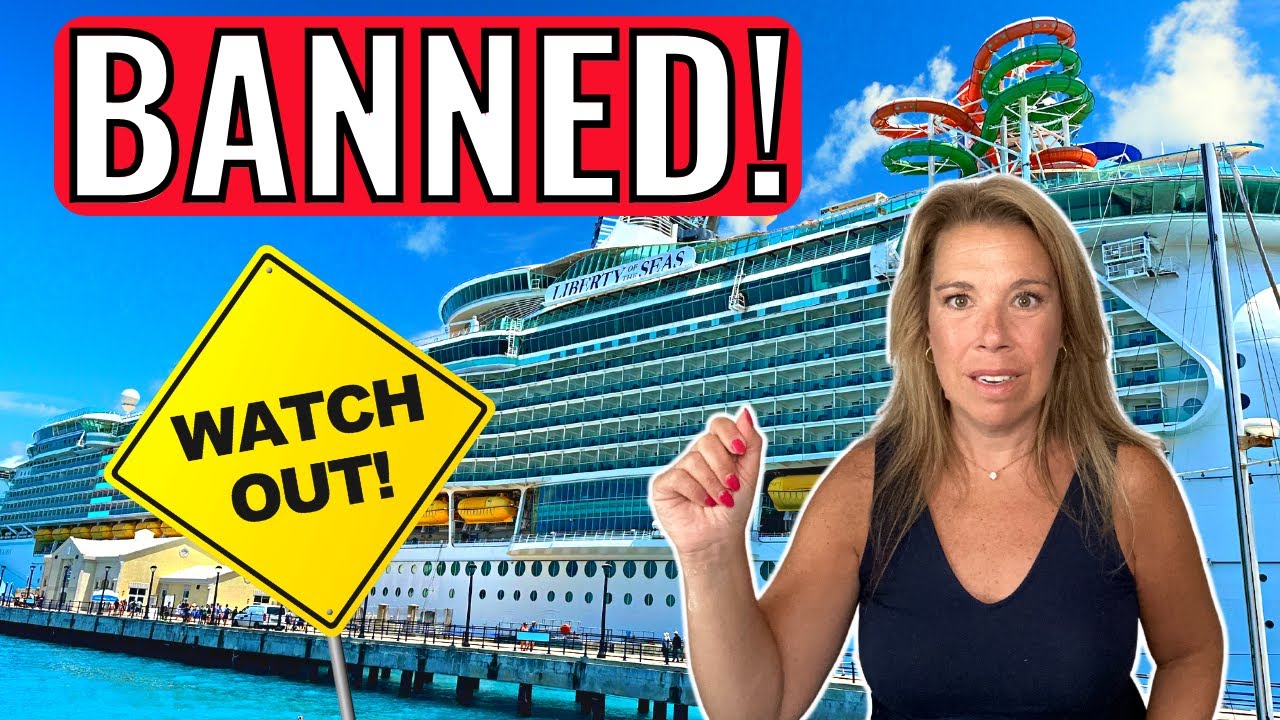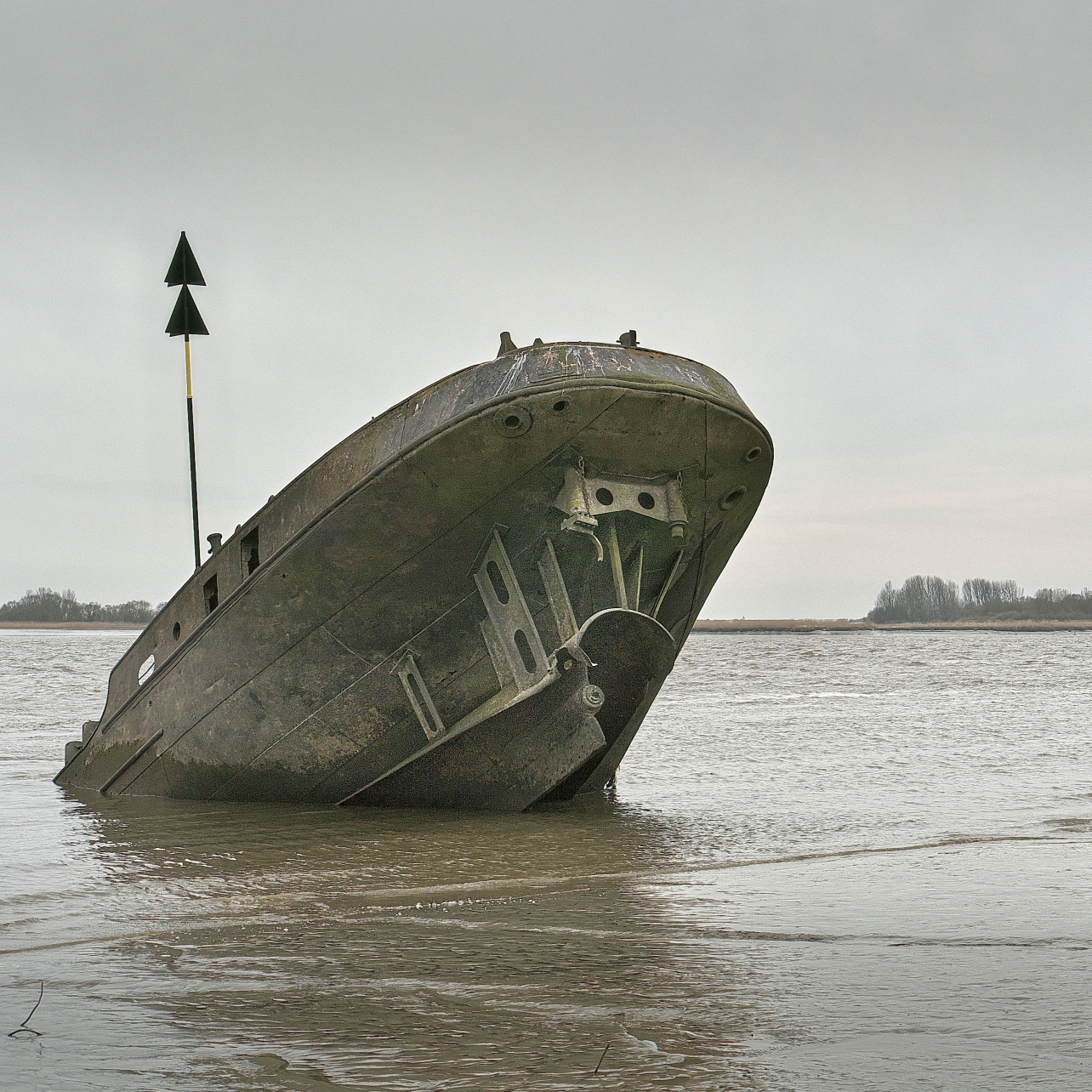Banned From A Cruise Ship? Your Rights And Recourse After A Complaint

Table of Contents
Understanding Why You Might Be Banned
A cruise ship ban is a serious matter, effectively preventing you from enjoying future cruises with that particular line. Understanding the reasons behind a ban is the first step in addressing the situation.
Common Reasons for Bans:
-
Disruptive behavior: This is a major reason for bans. Intoxication leading to aggressive behavior, fighting, or disturbing other passengers are serious offenses. Any actions that compromise the safety and enjoyment of other passengers can result in a ban. This includes excessive noise complaints, vandalism, or harassment.
-
Violation of cruise line rules and regulations: Each cruise line has a detailed code of conduct. Violations such as smoking in non-designated areas, failure to adhere to safety protocols (like life jacket drills), or unauthorized entry to restricted areas can lead to a ban. Carefully reviewing the terms and conditions before embarking is essential.
-
Non-payment of onboard expenses: Failure to settle your onboard account, including charges for drinks, excursions, or onboard purchases, can result in a ban. Cruise lines take non-payment seriously and may pursue legal action in addition to imposing a ban.
-
Failure to comply with crew instructions: Ignoring or disobeying lawful instructions from crew members, particularly those related to safety or security, can lead to disciplinary action, including a ban. This includes ignoring instructions regarding emergency procedures or refusing to comply with reasonable requests.
-
Serious criminal offenses: Any involvement in serious criminal activity onboard the ship, such as theft, assault, or drug trafficking, will almost certainly result in a ban and potential legal consequences.
-
Each cruise line has its own code of conduct. Review the terms and conditions carefully before booking. This is a preventative measure and can help you avoid misunderstandings that could lead to a ban.
-
Keep records of all interactions with cruise ship staff. This includes emails, notes of conversations, and any documentation you receive. This evidence can be crucial if you need to appeal a ban.
-
Understand that even minor infractions can lead to a ban. While some violations are more serious than others, even seemingly small breaches of rules can accumulate and lead to a ban if they're repeated or considered serious enough by the cruise line.
Your Rights After a Complaint
If you receive notification of a cruise ship ban, it's crucial to understand your rights. While a formal complaints procedure isn't always explicitly stated, you still have avenues for redress.
Due Process:
Many cruise lines lack a clearly defined process for handling complaints. However, you should still strive for due process.
- Request a written explanation of the reasons for the ban. This written explanation provides a record of the allegations against you, which is crucial for any appeal or legal action.
- Ask for details of any evidence used against you. Understanding the specifics of the claims against you allows you to properly address them in your response.
- Insist on the right to respond to the allegations. Cruise lines may offer an opportunity to respond in writing or via phone call. Take advantage of this opportunity to explain your side of the story.
- Consider obtaining legal counsel specializing in cruise ship litigation. A maritime lawyer can guide you through the process and protect your rights.
Appealing the Ban:
Even after a ban is imposed, appealing it is often possible.
- Contact the cruise line's customer service department. Begin your appeal process by formally contacting customer service. Keep records of all communications.
- Prepare a detailed written appeal, addressing all points raised against you. Your appeal should politely but firmly explain your perspective and refute the allegations against you.
- Provide any evidence to support your claim (e.g., witness statements, photos). Any supporting documentation will bolster your appeal.
- Be polite but firm in your communication. Maintain a professional tone throughout the appeal process.
Legal Recourse After a Cruise Ship Ban
If the cruise line refuses to overturn the ban or if you feel the ban is unjust, legal recourse may be an option.
Seeking Legal Advice:
Legal counsel is essential if you decide to pursue legal action.
- Consult with a maritime lawyer or an attorney specializing in passenger rights. These attorneys have expertise in cruise ship law and can advise you on your options.
- Discuss the circumstances of your ban and explore potential legal options. A lawyer can assess the strength of your case and outline the potential legal avenues available to you.
- Be prepared to present your case with supporting evidence. Gather all relevant documents, including the ban notification, communications with the cruise line, and any supporting evidence you might have.
Potential Legal Actions:
The specific legal actions you can take depend on the specifics of your case.
- Breach of contract claims: If you believe the ban is unreasonable or unjust, you may have grounds for a breach of contract claim.
- Defamation: If false accusations were made, you might have grounds to sue for defamation.
- Wrongful arrest or accusations of serious crimes: If you are wrongly accused of a serious crime, you might have grounds for legal action, seeking damages for the reputational and emotional harm caused.
Preventing a Cruise Ship Ban
The best approach is prevention. By being mindful of your actions and respecting the rules, you can significantly reduce the risk of a cruise ship ban.
Tips for Avoiding Trouble:
- Familiarize yourself with the cruise line's rules and regulations. Review the terms and conditions thoroughly before your cruise.
- Drink responsibly and avoid excessive alcohol consumption. Intoxication is a leading cause of disruptive behavior on cruise ships.
- Respect the crew and other passengers. Treat everyone with courtesy and respect.
- Be mindful of your behavior at all times. Remember that your actions reflect on yourself and can impact the experience of others.
- Report any incidents or issues promptly to the relevant authorities onboard. If you witness any problems or have concerns, report them to the crew immediately.
Conclusion
Being banned from a cruise ship can be a significant setback. However, understanding your rights and potential recourse can empower you to challenge unfair bans. Remember to document everything, seek legal advice if necessary, and focus on presenting a compelling case to the cruise line or in court. By being proactive and informed, you can improve your chances of resolving the situation successfully. Don't hesitate to seek help if you've been unfairly subjected to a cruise ship ban. Learn more about protecting your rights and navigating this complex issue.

Featured Posts
-
 Bharty Ryasty Dhsht Grdy Kshmyr Myn Eyd Pr Khwn Bhaw
May 01, 2025
Bharty Ryasty Dhsht Grdy Kshmyr Myn Eyd Pr Khwn Bhaw
May 01, 2025 -
 Dagskrain Meistaradeildin Og Nba Stjoernu Einvigi I Bonusdeildinni
May 01, 2025
Dagskrain Meistaradeildin Og Nba Stjoernu Einvigi I Bonusdeildinni
May 01, 2025 -
 The Shifting Dynamics Between Sam Altman And Satya Nadella In The Ai Landscape
May 01, 2025
The Shifting Dynamics Between Sam Altman And Satya Nadella In The Ai Landscape
May 01, 2025 -
 Lich Thi Dau Vong Chung Ket Thaco Cup 2025 Xem Truc Tuyen O Dau
May 01, 2025
Lich Thi Dau Vong Chung Ket Thaco Cup 2025 Xem Truc Tuyen O Dau
May 01, 2025 -
 V Mware Costs To Skyrocket 1 050 At And Ts Reaction To Broadcoms Price Hike
May 01, 2025
V Mware Costs To Skyrocket 1 050 At And Ts Reaction To Broadcoms Price Hike
May 01, 2025
Latest Posts
-
 Emhoffs Removal From Holocaust Memorial Council A Trump Decision
May 01, 2025
Emhoffs Removal From Holocaust Memorial Council A Trump Decision
May 01, 2025 -
 Architekt Des Scheiterns Blockaden In Den Deutschen Koalitionsgespraechen
May 01, 2025
Architekt Des Scheiterns Blockaden In Den Deutschen Koalitionsgespraechen
May 01, 2025 -
 Trump Administration Removes Doug Emhoff From Holocaust Memorial Council Post
May 01, 2025
Trump Administration Removes Doug Emhoff From Holocaust Memorial Council Post
May 01, 2025 -
 Wer Zieht Die Faeden Ein Architekt Des Scheiterns In Den Koalitionsverhandlungen
May 01, 2025
Wer Zieht Die Faeden Ein Architekt Des Scheiterns In Den Koalitionsverhandlungen
May 01, 2025 -
 Emhoffs Removal From Holocaust Memorial Council Trumps Action Explained
May 01, 2025
Emhoffs Removal From Holocaust Memorial Council Trumps Action Explained
May 01, 2025
